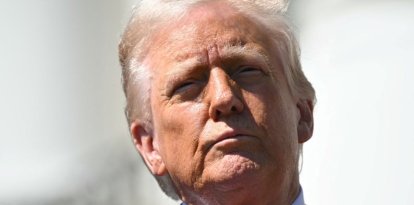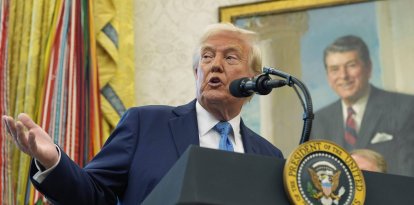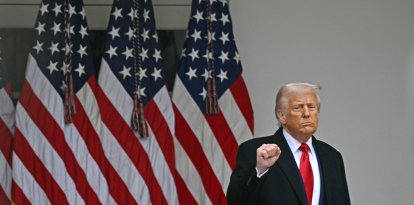Harvard rejects Trump's demands, and his administration responds by freezing $2.26 billion in grants and contracts
The institution argues that the government's demands violate the First Amendment and omit Title VI due process.

Harvard
The Trump Administration announced the freezing $2.26 billion in grants and contracts to Harvard University after the institution publicly rejected the federal government's demands, which call for internal reforms to combat antisemitism on campus. In a letter to the academic community, Interim President Alan Garber said the university will not yield to pressures that he believes seek to overstep the government's legal bounds.
"The University will not surrender its independence or relinquish its constitutional rights," Garber stated.
The conflict marks the beginning of an open dispute between the nation's wealthiest university and the federal government, which had first threatened to with hold nearly $9 billion in grants and contracts intended for Harvard and its affiliated hospitals.
Following the public rejection of the government's demands, the Trump Administration said the university's response "reinforces the troubling entitlement mindset that is endemic in our nation’s most prestigious universities and colleges – that federal investment does not come with the responsibility to uphold civil rights laws."
Government Demands: Policy Changes and Internal Governance
Harvard University's stance constitutes, to date, the most forceful rejection of the Trump administration's demands since it began pressuring universities earlier this year.
In early April, the Trump Administration's task force on anti-Semitism sent a letter to the institution demanding nine measures deemed necessary to maintain the financial relationship between Harvard and the federal government.
Most of the demands target operational aspects of the university and include a blanket ban on the wearing of facemasks, modifications to governance, leadership and the admissions system, as well as the elimination of diversity, equity and inclusion (DEI) programs.

JNS
Bill would fine schools $100k or more for failing to protect religious students
JNS (Jewish News Syndicate)
Harvard responds
In its response sent Monday, Harvard's lawyers emphasized that over the past 15 months the university has taken disciplinary action against those who have violated institutional norms and promoted an environment with greater diversity of thought.
However, the institution believes the federal demands violate the First Amendment, which protects free speech, and accuses the government of omitting due process by imposing changes without following procedures established by Title VI of the Civil Rights Act.
Conflict moves to the courts
Last Friday,the Harvard chapter of the American Association of University Professors (AAUP) filed a lawsuit against the Trump Administration in federal court. They accuse the government of using civil rights laws as a tool to impose a political agenda on academia and restrict ideological freedom. A similar lawsuit was filed by professors at Columbia University.
Harvard is not the only institution in the government's crosshairs. Brown, Princeton, Northwestern and Cornell also face federal funding reviews or freezes as part of the effort to reform the university environment in response to allegations of anti-Semitism.

JNS
Trump admin seeking judicial consent decree at Columbia over Jew-hatred
JNS (Jewish News Syndicate)
RECOMMENDATION




















